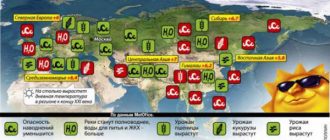 Photo from open sources
Photo from open sources
Japanese Yokagama has become the scene of climate debate, in which more than 500 scientists and officials from many countries. Delegates discussed how global warming will affect people’s lives. Debate participants agree opinion that by 2100, due to sea level rise, millions people will be forced to leave their homes and relocate. In some parts of the planet will become more frequent and floods will intensify, and in others – drought. A significant part of the species of birds, fish, animals and insects disappear or be on the verge of extinction. Climate of the future cause serious food problems and lead to hunger in a number of regions of the planet. Harvests expected by 2050 corn, rice and wheat will drop 25%, according to some forecasts. After 2050, cereal yields will drop even more significantly, while the world’s population will reach nine billion people. Many fish species migrate to northern waters, which adversely affect the food security of residents tropical regions. In some parts of the tropics, as well as in Antarctic fish catch may fall by 50%. However, the darkest experts predicted increased violence in the most vulnerable regions of the planet. This is due to forced migration due to climate change and the possibility of conflicts between states in the result of both migration and changes in the distribution of water and food resources. Conclusions from the discussion in Yokagame, as part of the next report
Intergovernmental Panel on Climate Change (IPCC). The paper emphasizes that the number of scientific evidence of the likely effects of climate change in practice doubled since the publication of the previous IPCC report in 2007 year. As always, experts leave people reading their reports hope. The report concludes with the thesis that timely measures taken will avoid the worst-case scenarios. One of meeting participants in Yokagama Red Cross Director Maarten van Aalst summed up: “It was a very productive joint Work”.
Time Climate






